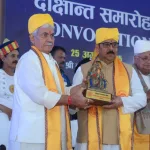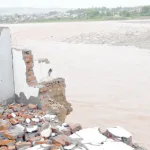Despite some recent progress in healthcare facilities, there is still much work to be done to improve the healthcare system in J&K. One of the main challenges facing the health system in the UT is the lack of healthcare infrastructure. There are not enough hospitals, advanced healthcare facilities, tertiary medical centers to meet the needs of the people. This is particularly true in rural areas, where access to healthcare is often limited. Another major challenge is the shortage of healthcare professionals. This shortage is exacerbated by the fact that many healthcare professionals leave the UT to work in other parts of the country or abroad. To address this issue, the government needs to invest in training more healthcare professionals and providing incentives to encourage them to work in the valley. Also, many people in Kashmir cannot afford the cost of medicines, and expensive medical procedures. This can lead to serious health problems, especially for those with chronic conditions. In that regard, the government needs to invest in improving the supply chain for medicines and medical supplies and providing subsidies or other forms of financial assistance to help people afford the cost of treatment. Further, there is a need to improve public health education and awareness in the valley. Health experts are of the opinion that many people in the UT do not have a good understanding of basic health practices, such as good nutrition, hygiene, and disease prevention. This lack of knowledge can lead to poor health outcomes, particularly for children and vulnerable populations. The government needs to invest in public health education campaigns and initiatives that can help to raise awareness about the importance of good health practices. In order to make healthcare system more vibrant in the UT, there are a number of steps that the government and other concerned authorities can take. First and foremost, there needs to be a significant increase in funding for the health system in the UT. Secondly, there needs to be a greater focus on preventative healthcare. This means investing in public health education and initiatives that can help to prevent the spread of disease and promote good health practices. It also means investing in programs that can help to identify and address the underlying causes of poor health, such as poverty, malnutrition, and lack of access to clean water. The need of the hour is to improve the foundational level of the health system in the UT, if we are to improve the health and wellbeing of people at large. It is time for the government and health department to take necessary action and make the health of the people of J&K a top priority.
Work on basics
Sign Up For Daily Newsletter
Be keep up! Get the latest breaking news delivered straight to your inbox.
By signing up, you agree to our Terms of Use and acknowledge the data practices in our Privacy Policy. You may unsubscribe at any time.
Leave a Comment Leave a Comment





